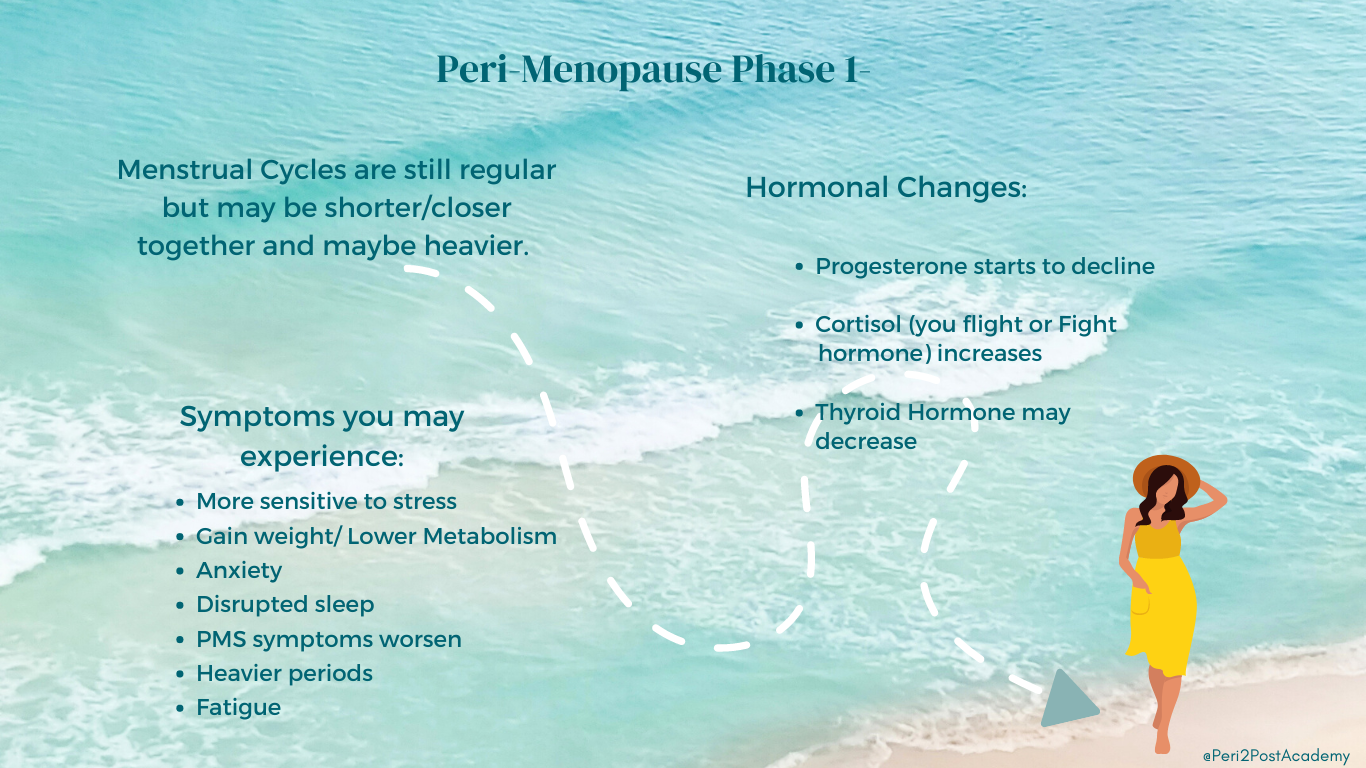The initial phase of perimenopause is defined by lower progesterone levels.
Menstrual periods are regular throughout this early phase of perimenopause. However, during this stage, your ovaries reduce the frequency of ovulation. If you do not ovulate during the month, your progesterone levels in the second half of your cycle will be low. The frequency, duration, and flow of blood can change, and there may be mid-cycle spotting. A decrease in progesterone levels is the root cause of these changes. Your estrogen levels may not have changed, but your estrogen-to-progesterone ratio is off.
Healthy levels of progesterone make periods less heavy because they limit estrogen’s stimulating action on the uterine lining.
But did you realize that progesterone affects several other systems in your body? The benefits of progesterone go far beyond pregnancy and menstrual relief. It offers unexpected relaxing (including quality sleep), nourishing, invigorating, and strengthening properties for the body.
Benefits of maintaining appropriate progesterone levels include…
Increases stamina by boosting the thyroid and metabolic rate. That is why the generation of progesterone after ovulation results in a half-degree increase in core body temperature.
Stabilizes communication between the brain and adrenal glands, supporting normal HPA (Hypothalamus, Pituitary, and Adrenal) function. Keeping you more balanced and less anxious.
One of Progesterone’s metabolites has a calming effect similar to valium, promoting depression relief and improved sleep. It also improves sleep by directly interacting with the brain’s GABA receptors.
Supports good immune function, reduces inflammation, and promotes detoxification, all of which combine to prevent autoimmune illnesses.
Muscles and bones are strengthened by stimulating cell proliferation, which produces these necessary building components.
The lowering of male hormones in the body is responsible for nourishing hair and clearing skin. The ultimate result is less sebum production, faster hair growth, and fewer breakouts.
With Progesterone having an effect on all these actions in our body, it’s no wonder the signs and symptoms of the Peri-Menopause are so varied and can be wide-spread.
- anemia
- anxiety
- brain fog
- bloating
- decreased libido
- depression
- fatigue
- mood swings
- hypersensitivity
- insomnia
- irritability
- migraines and headaches
- osteoporosis
- pain and inflammation
- reproductive growths (cyst, endometriosis, fibroids, polyps)
- weight gains
How can you know if you have low progesterone levels?
Urine and saliva hormone lab tests provide a full picture of your sex hormone levels (estrogens, progesterone, and testosterone) and how they are processed. They also provide information on the hormones’ precursors. The DUTCH Plus test also provides information about your cortisol levels throughout the day as well as insight into how you biologically respond to a stressor. The DUTCH Cycle Mapping is a urine test that measures estrogen and progesterone levels throughout the month.
